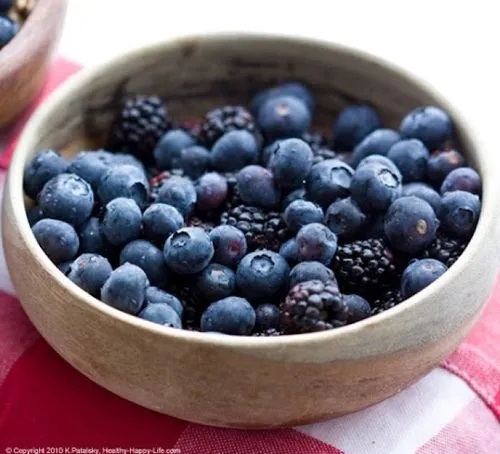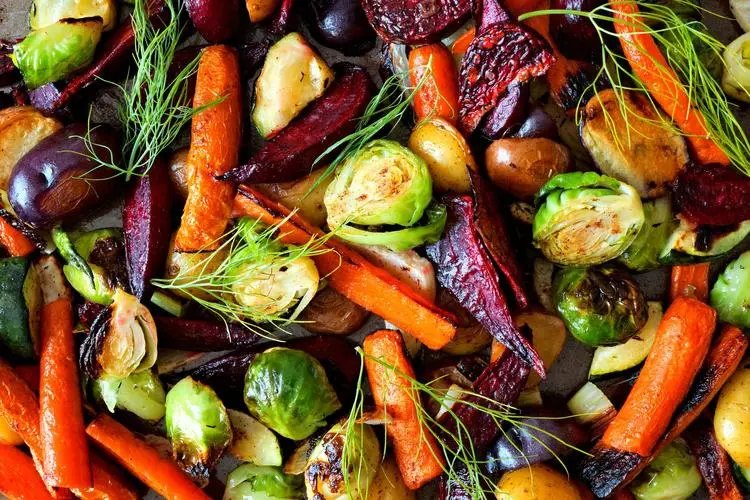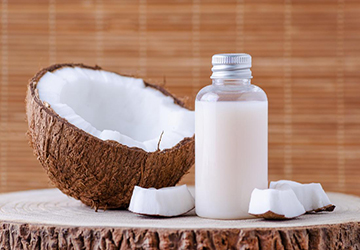A strong immune system is essential to overall health and well-being. It is the body's natural defense mechanism against harmful pathogens, viruses and bacteria.
A strong immune system is essential for preventing and fighting infection, disease and disease. There are various ways to boost your immune system, such as getting enough sleep, exercising regularly, and reducing stress.
However, one of the most effective ways to boost your immune system is through proper nutrition. Eating a balanced, healthy diet that includes a variety of nutrient-dense foods can significantly improve immune function. In this article, we discuss the 10 best foods to boost your immune system.

berry:
Berries are a group of fruits rich in antioxidants like anthocyanins and vitamin C. These antioxidants help neutralize harmful free radicals in the body, reduce inflammation, and prevent cell damage.
Berries like strawberries, blueberries, raspberries and blackberries are also high in fiber, which can promote gut health and support immune function.
Berries also contain polyphenols, which have been shown to have antibacterial and anti-inflammatory properties.
Regular consumption of berries can help reduce inflammation, prevent infection and improve gut health, all of which are essential for a healthy immune system.

Citrus fruits:
Citrus fruits, such as oranges, lemons and grapefruit, are rich in vitamin C, a powerful antioxidant that plays a vital role in immune function. Vitamin C helps stimulate the production of white blood cells, which are essential for fighting infection. It also helps protect cells from oxidative stress, reduces inflammation, and promotes overall health.
One medium orange contains about 70 mg of vitamin C, more than the recommended daily intake for adults.

Leafy vegetables:
Green leafy vegetables like spinach, kale, and kale are rich in essential vitamins and minerals that support immune function.
They're high in vitamin C, vitamin A, and folic acid, all of which are essential for immune function. Green leafy vegetables are also rich in antioxidants like beta-carotene, which help protect cells from damage and reduce inflammation.
It was found that eating kale daily for eight weeks improved immune function by increasing antibody production.
garlic:
Ginger is another food that has been used for centuries for its properties. It contains compounds called gingerol and gingerol, which have anti-inflammatory properties.
Ginger also helps reduce nausea and improve digestion, which is essential for gut health and immune function.
Adding ginger to your diet can help reduce inflammation, promote gut health, and support immune function.
Nuts and seeds:
Nuts and seeds such as almonds, walnuts and sunflower seeds are rich in vitamin E, antioxidants and essential fatty acids that support immune function.
Vitamin E helps protect cells from damaging free radicals, while antioxidants reduce inflammation and improve overall health. Essential fatty acids, such as omega-3 fatty acids, also help reduce inflammation and support immune function.
yogurt:
Yogurt is a fermented food that contains live and active bacteria that promote gut health and support immune function.
It's also rich in protein, calcium, and vitamin D, all of which are essential for overall health and well-being. The live and active bacteria in yogurt help strengthen the immune system by increasing antibody production and promoting gut health.
turmeric:
Turmeric is a spice that contains a compound called curcuminoids, which have powerful anti-inflammatory and antioxidant properties.
Curcumin helps reduce inflammation and oxidative stress, both of which are critical for immune function. It also helps improve gut health and promotes overall health and well-being.
Adding turmeric to your daily diet for eight weeks improved immune function and reduced inflammation in the body, the study found.
Turmeric is a spice that can be added to various dishes such as curries, soups and smoothies to enhance their flavor while reaping the benefits of the spice.
Shellfish: Shellfish such as oysters, clams, and mussels are rich in zinc, which is essential for immune function. Zinc helps stimulate the production of white blood cells, which are essential for fighting infection. It also helps reduce inflammation and improve overall health.
Taking zinc supplements has been found to reduce the duration and severity of colds in children. Shellfish are also rich in protein, omega-3 fatty acids, and vitamin B12, all of which contribute to immune function and overall health.

chicken soup:
Chicken soup has been a common remedy for colds and flu for centuries, and for good reason. It contains many nutrients such as protein, vitamins and minerals to support immune function.
It also has anti-inflammatory properties that can help reduce cold and flu symptoms.
Studies have found that healthy adults who eat chicken soup can reduce inflammation and improve immune function.
diploma:A balanced, healthy diet that includes a variety of nutrient-dense foods is essential for a strong immune system. Berries, citrus fruits, green leafy vegetables, garlic, ginger, nuts and seeds, yogurt, turmeric, shellfish, and chicken broth are all great foods to include in your diet to boost immune function.
(Images from the internet)





